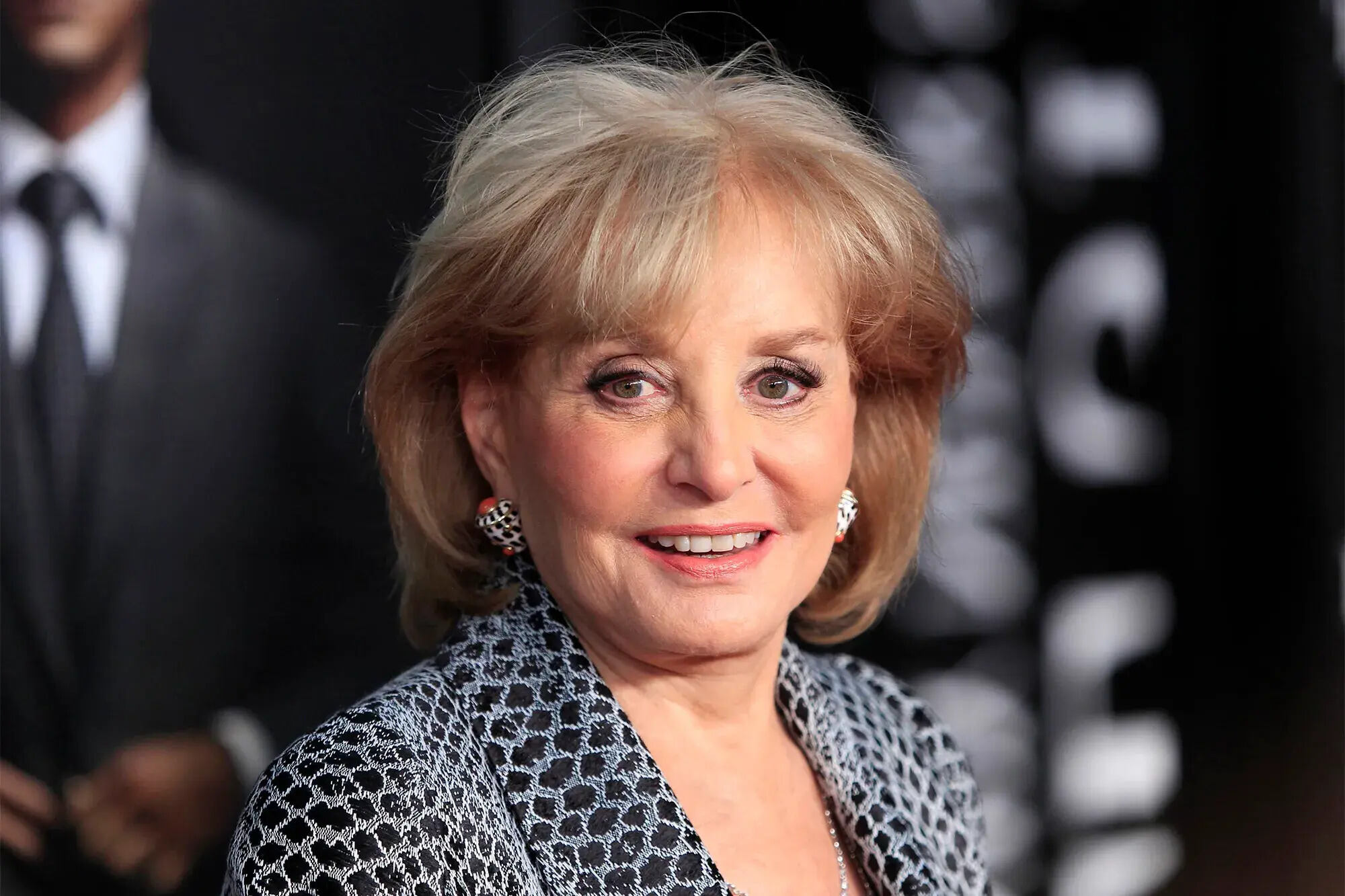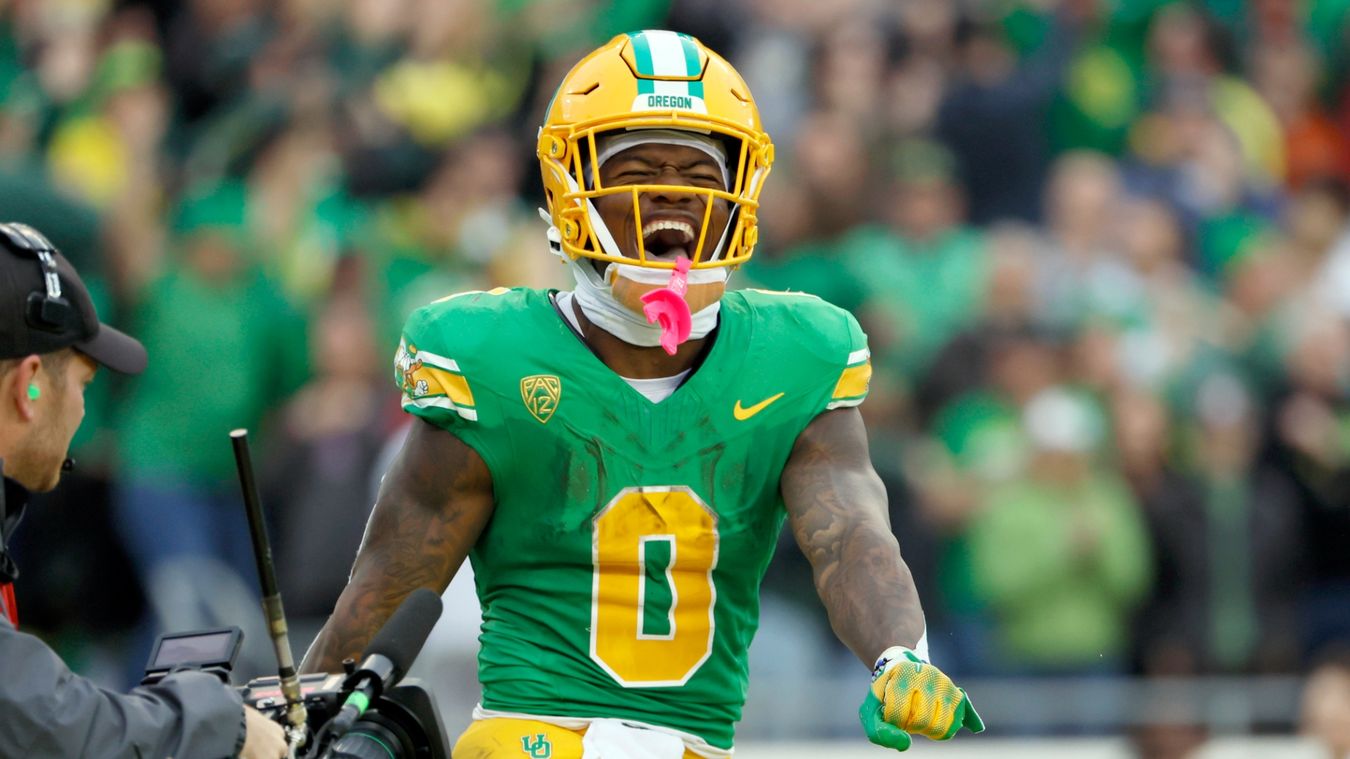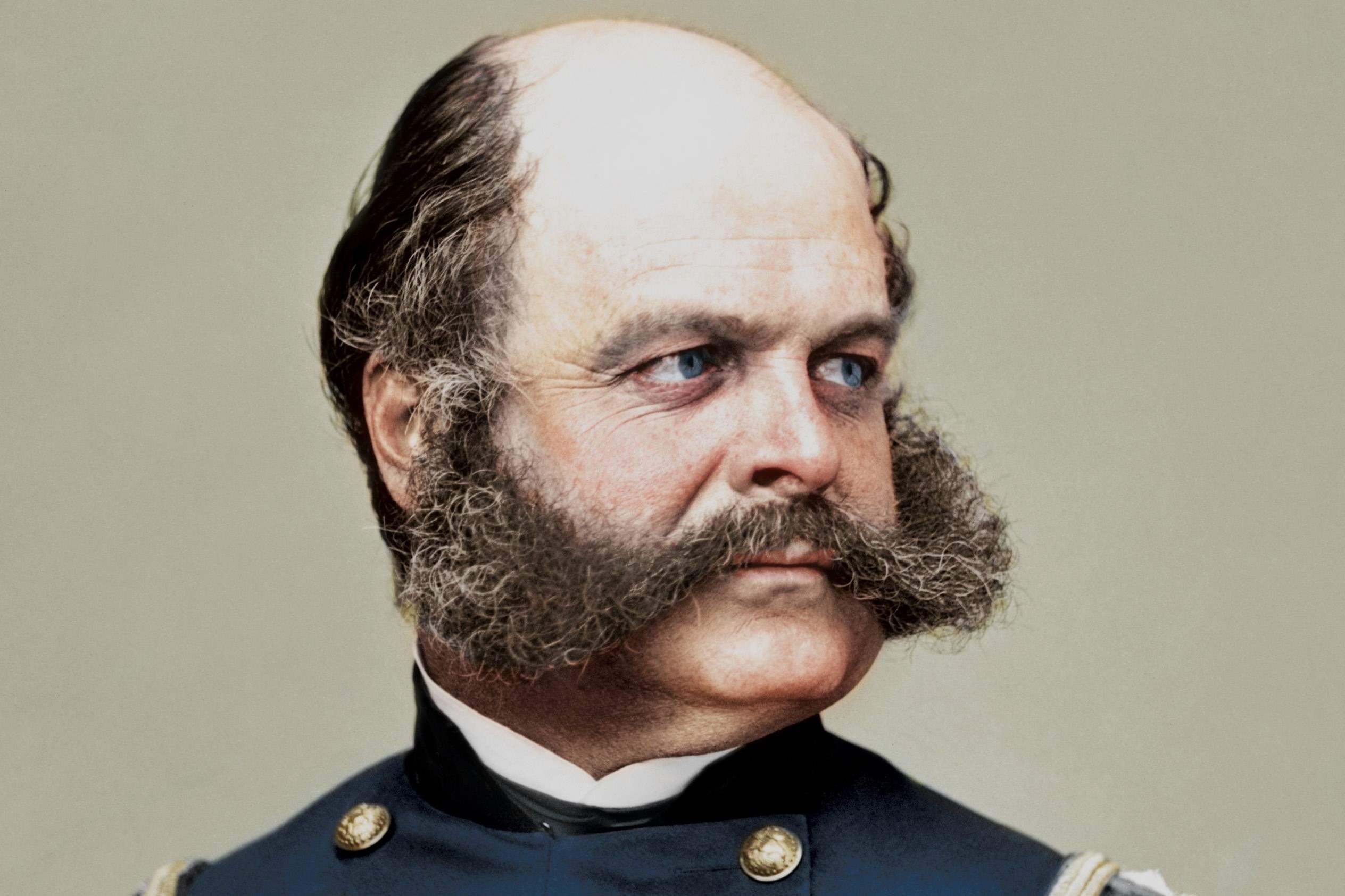
Who was Barbara Walters? Barbara Walters was a pioneering journalist who changed the face of television news. Born on September 25, 1929, in Boston, Massachusetts, she grew up in a showbiz family, which influenced her career path. Walters graduated from Sarah Lawrence College in 1951 and quickly made her mark in the media industry. She broke barriers by becoming the first woman to co-anchor an evening network news program and was known for her exclusive interviews with world leaders and celebrities. Walters' career spanned over five decades, during which she won numerous awards and accolades. Her legacy continues to inspire journalists today.
Key Takeaways:
- Barbara Walters, a trailblazing journalist, overcame personal challenges to become the first woman to coanchor an evening network news program. Her compassion and empathy shaped her iconic interviews and left a lasting legacy.
- From her early years in showbiz to her groundbreaking interviews with world leaders, Barbara Walters redefined the art of interviewing and set new standards for journalists. Her legacy as a cultural icon continues to inspire future generations.
Early Life and Family
Barbara Walters' journey began in a world far removed from the glitz and glamour of television journalism. Her early years were shaped by unique family dynamics and experiences that would later influence her career.
-
Early Life and Family: Barbara Walters was the daughter of Lou Walters, an immigrant showbiz impresario and nightclub owner, and Dena Walters. Her family's financial instability and her special-needs sister, Jackie, significantly influenced her life and career.
-
Birth and Early Years: Born on September 25, 1929, in Boston, Massachusetts, Walters grew up in a family that valued show business. Her father's nightclub, the Latin Quarter, was a popular spot in New York City.
-
Education: Walters graduated from Sarah Lawrence College in 1951. Her education provided her with a solid foundation in writing and producing for television.
Career Beginnings
Barbara Walters' career in journalism didn't start with a bang. She worked her way up from modest beginnings, gaining valuable experience along the way.
-
Career Beginnings: After college, Walters worked briefly in an advertising agency before becoming the assistant to the publicity director for New York City’s NBC-affiliated television station. This role allowed her to gain experience in writing and producing for television.
-
Move to CBS: Walters soon moved to the Columbia Broadcasting System (CBS) television network, where she became a news and public affairs producer and writer. Her work at CBS laid the groundwork for her future success in television journalism.
Breaking into Television
Walters' entry into television was marked by her role on NBC's Today show, where she began to make a name for herself.
-
Joining NBC’s Today Show: In 1961, Walters joined NBC’s popular morning show Today as a writer and occasional on-air feature story contributor. This role marked her entry into mainstream television journalism.
-
The ‘Today Girl’ Role: In 1964, Walters was hired as the “Today Girl,” a position traditionally limited to being attractive, making small talk, and reading commercials. However, she quickly expanded this narrow role by making a place for herself among the show’s panel of commentators and newsreaders.
-
Emmy Award Win: In 1974, Walters was named cohost of Today with Hugh Downs. The following year, she won an Emmy Award for her work on the show, solidifying her position as a prominent television personality.
Pioneering at ABC
Walters made history by becoming the first woman to coanchor an evening network news program, breaking new ground for female journalists.
-
Move to ABC: In 1976, Walters made headlines by signing a five-year contract with ABC that made her the first woman to coanchor an evening network news program. With a salary of $1 million per year, she became the highest-paid journalist at the time.
-
Exclusive Interviews: Walters’ exclusive interviews with world notables, including U.S. presidents and first ladies, were a hallmark of her career. She obtained exclusive interviews for her popular Barbara Walters Specials, which premiered in 1976.
-
Interviewing Style: Walters’ disarmingly direct questioning style drew many subjects into frequently interesting and occasionally provocative moments of self-revelation. Her technique was described in her book How to Talk with Practically Anybody About Practically Anything (1970).
Awards and Recognition
Throughout her career, Walters received numerous accolades for her exceptional work in journalism.
-
Emmy Awards: Walters received Emmy Awards for best interviewer in 1982 and 1983. Her awards recognized her exceptional interviewing skills and her ability to elicit candid responses from her subjects.
-
20/20 Correspondent: In 1979, Walters became a part-time correspondent for ABC’s news show 20/20. She scored an exclusive interview with former President Nixon in 1980, his first TV interview since his resignation in 1974.
-
Co-hosting 20/20: By fall 1981, Walters was a regular contributor to 20/20. She, along with Hugh Downs, was elevated to co-host in 1984. Downs retired in 1999, and Walters continued to co-host the show with John Miller and later John Stossel.
-
High Salary: In September 2000, Walters renewed her contract with ABC News for five more years. Her reported $12 million yearly salary made her the highest-paid news host in history at that time.
Retirement and Later Career
Even after stepping down from her regular roles, Walters continued to influence the world of journalism.
-
Retirement from 20/20: In September 2004, at the age of 73, Walters stepped down as co-host of 20/20. Her retirement marked the end of her regular television news broadcasting career.
-
The View Co-host: In 1997, Walters began co-hosting the daytime talk show The View. The show featured a panel of women who exchanged opinions and interviewed guests. Walters helped create the show and was a key figure in its success.
-
Autobiography: In her autobiography Audition (2008), Walters reflected on both her public and private life. The book was named after her feeling that she had to prove herself over and over again throughout her career.
Personal Life and Challenges
Walters' personal life was as complex and challenging as her professional one, marked by family responsibilities and personal struggles.
-
Personal Life: Despite her professional success, Walters’ personal life was marked by challenges. She had a love-hate relationship with her special-needs sister, Jackie, and struggled with feelings of guilt and responsibility towards her family.
-
Compassion and Understanding: Walters credited her sister with building a compassion and understanding of people that she might never have had otherwise. However, she also admitted to times when she hated her sister for being different and for the restraints she put on her life.
Impact and Legacy
Barbara Walters' career had a profound impact on journalism, paving the way for future generations of female journalists.
-
Career Impact: Walters’ career had a profound impact on women in journalism. She paved the way for future generations of female journalists by breaking down barriers and setting new standards for television interviews.
-
Interviews with World Leaders: Walters interviewed every U.S. president and first lady from Richard and Pat Nixon to Barack and Michelle Obama, as well as Donald and Melania Trump during his 2016 presidential campaign. Her interviews with world leaders were highly anticipated and often made headlines.
-
First Joint Interview: In 1977, Walters arranged the first joint interview with Prime Minister Menachem Begin of Israel and President Anwar Sadat of Egypt. This historic interview was a significant moment in her career and highlighted her ability to secure exclusive and groundbreaking interviews.
Memorable Interviews
Walters conducted some of the most memorable interviews in television history, often making headlines and earning accolades.
-
Christopher Reeve Interview: In 1995, Walters conducted the first interview with Christopher Reeve after the horseback-riding accident that left him paralyzed. The broadcast received the prestigious George Foster Peabody Award in 1996.
-
Monica Lewinsky Interview: In 1999, Walters’ two-hour-long exclusive interview with the former White House intern Monica Lewinsky made history as the highest-rated news program ever broadcast on a single network. The interview was a major news event and cemented Walters’ reputation as a master interviewer.
-
Barbara Walters Specials: Walters’ Barbara Walters Specials were a series of exclusive interviews with world notables. The specials premiered in 1976 and continued until 2013. Each special featured Walters’ disarmingly direct questioning style, which often led to candid and revealing responses from her subjects.
-
Fascinating People Series: In 1993, Walters introduced an annual program that featured her interviews with the top newsmakers of the year. The series, which ended in 2013, showcased Walters’ ability to secure exclusive interviews with influential figures.
Honors and Recognition
Walters' contributions to journalism were recognized with numerous awards and honors throughout her career.
-
Hall of Fame Induction: In 1990, Walters was named to the Hall of Fame of the Academy of Television Arts and Sciences. This recognition acknowledged her significant contributions to television journalism and her impact on the industry.
-
Legacy: Barbara Walters’ legacy extends beyond her impressive career. She inspired countless journalists and paved the way for future generations of women in television news. Her interviews continue to be studied and admired for their depth and insight.
Final Years and Tributes
Even after her passing, Walters' legacy continues to be celebrated and remembered by many.
-
Death and Tributes: Barbara Walters passed away on December 30, 2022, at the age of 93. Tributes poured in from across the media and political spectrum, celebrating her groundbreaking career and her lasting impact on journalism.
-
Awards and Honors: Throughout her career, Walters received numerous awards and honors. In addition to her Emmy Awards, she was recognized for her contributions to television journalism with multiple other accolades.
-
Impact on Television Journalism: Walters’ influence on television journalism cannot be overstated. She redefined the art of interviewing and set new standards for journalists. Her ability to secure exclusive interviews and her probing yet casual approach made her a household name.
Personal Challenges and Compassion
Walters' personal experiences shaped her professional approach, instilling in her a deep compassion and empathy.
-
Personal Challenges: Despite her professional success, Walters faced personal challenges throughout her life. Her childhood was marked by financial instability and her special-needs sister required constant care and attention. These experiences shaped her perspective and influenced her career choices.
-
Compassion and Empathy: Walters’ experiences with her sister instilled in her a deep compassion and empathy for people. This trait was evident in her interviews, where she often managed to elicit candid and revealing responses from her subjects.
-
Legacy in Popular Culture: Barbara Walters’ legacy extends beyond the world of journalism. She remains a cultural icon, symbolizing the power of determination and hard work. Her interviews continue to be studied and admired for their depth and insight, making her one of the most influential journalists of all time.
Barbara Walters' Lasting Impact
Barbara Walters' career changed journalism forever. From her early days on NBC’s Today show to her groundbreaking role at ABC, she shattered glass ceilings and set new standards. Walters' knack for securing exclusive interviews with world leaders, celebrities, and newsmakers made her a household name. Her direct yet compassionate interviewing style drew out candid responses, making her interviews must-watch TV.
Her work on 20/20 and The View showcased her versatility and commitment to quality journalism. Walters' influence extends beyond her impressive career; she inspired countless women to pursue careers in journalism. Her legacy lives on in the many journalists who follow in her footsteps, striving for the same excellence she embodied.
Barbara Walters' contributions to journalism and television will be remembered for generations. Her pioneering spirit and dedication to her craft have left an indelible mark on the industry.
Frequently Asked Questions
Was this page helpful?
Our commitment to delivering trustworthy and engaging content is at the heart of what we do. Each fact on our site is contributed by real users like you, bringing a wealth of diverse insights and information. To ensure the highest standards of accuracy and reliability, our dedicated editors meticulously review each submission. This process guarantees that the facts we share are not only fascinating but also credible. Trust in our commitment to quality and authenticity as you explore and learn with us.


